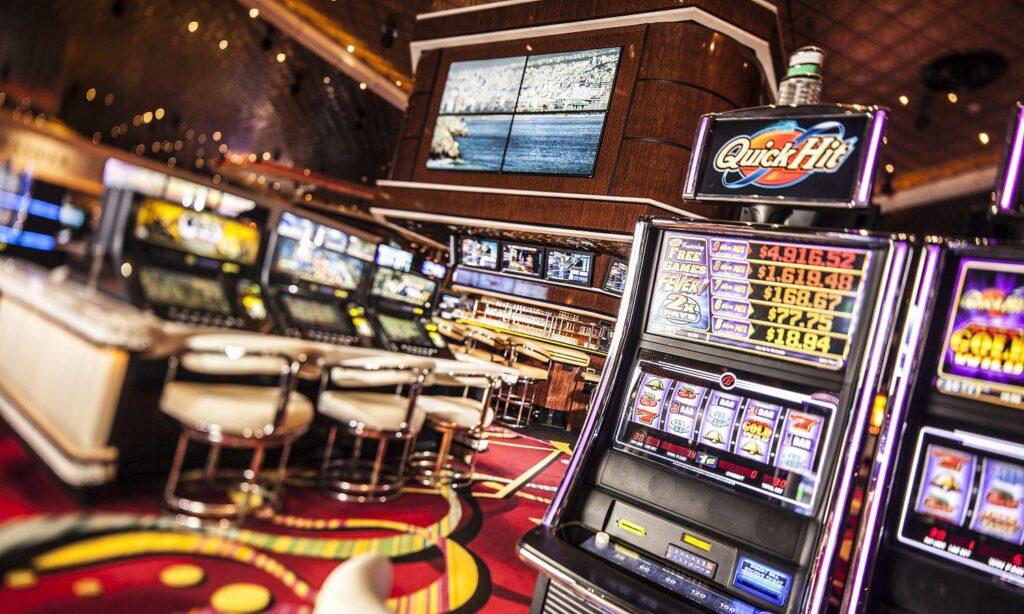When it comes to betting and trading securities, many people show clear differences, while others point out clear similarities. The purpose of this conversation is to delve into the differences and adjustments that occur between the two levels of business management, exploring aspects such as risk, reward, strategic decision making and the influence of external factors.

What is the stock market in the gaming business?
The term “financial betting exchange” in Russian is directly translated as “financial betting exchange”. Apparently, this may apply to the money market segment focused on shares and expensive securities of bookmaking companies.
In this market, investors can buy, sell or exchange shares of companies that operate casinos, manufacture gaming equipment or provide gambling services. Some examples of such companies would be Las Vegas Sands, MGM Resorts International and Wynn Resorts, but the availability of specific companies will depend on the exchange and local regulations.
Investing in gaming stocks can be volatile and risky due to the nature of the industry, which is highly affected by economic conditions, regulatory changes and other factors. However, it can also be profitable when conditions are favorable as the industry generates significant revenues worldwide.
Before investing in the gambling stock market, it is critical for investors to carefully research and understand the dynamics and regulation of the gambling industry, and consider their risk tolerance and investment objectives.
The essence of gambling
Gambling primarily involves betting on an uncertain outcome, predominantly in games of chance. This is an enterprise that involves risk, and the result primarily depends on luck, chance or unforeseen events. The essence of gambling is immediate reward or loss, which is largely independent of skill, and the odds are usually not in the participant’s favor.
Stock market bottom
Conversely, the stock market is a platform for buying and selling shares of companies. It operates on the basis of thorough research, analysis and understanding of market trends. Investing in the stock market usually involves taking partial ownership in companies, betting on their future success or expecting profit through dividends or capital gains.
Risk and reward: a common theme
A tangible thread running through gambling and the stock market is the risk and reward aspect. Participants in both spheres are motivated by the possibility of obtaining monetary gain, albeit with a corresponding risk of loss. Both activities require weighing the odds, with decisions based on potential benefits versus their inherent risks.
Decision Making Strategies
In both betting and stock investing, participants use a number of decision-making strategies to increase their chances of receiving rewards. Betting strategies may include betting methods, game selection, and bankroll management. Interestingly, financial exchange strategies rely on market research, asset allocation, and portfolio diversification to reduce risk and optimize returns.
External factors and market elements
Market elements and external variables play a key role in shaping the performance of a securities exchange. Economic indicators, geopolitical events and company performance influence stock prices and market trends. However, in betting, results are predominantly determined by chance and probability, with external elements having little direct influence.
Regulation and legitimacy
The stock market operates within a strict regulatory framework, ensuring transparency, fairness and investor protection. Regulators, such as the Securities and Exchange Commission, monitor market operations to ensure compliance with laws and regulations. Conversely, gambling is governed by a different set of rules that vary widely between jurisdictions, with an emphasis on ensuring fair play and preventing illegal activities.
Long term versus immediate gratification
Investing in the stock market often requires a long-term view, with rewards accruing over long periods of time. This requires patience, resilience and a deep understanding of market mechanisms. Gambling, on the other hand, is synonymous with the desire for immediate gratification, where participants strive for instant reward.
Social and economic consequences
Both gambling and the stock market have profound social and economic consequences. The stock market plays an important role in economic development by promoting capital formation and promoting economic growth. It gives companies access to capital, allowing them to expand and create jobs. Conversely, although gambling contributes to the local economy through job creation and tax revenue, they also raise concerns about addiction, social inequality and mental health problems.
Psychological elements and behavioral patterns
Behavioral patterns and psychological elements are an integral part of both gambling and stock market participation. The joy of victory, fear of loss and hope for a favorable outcome are emotions experienced in both spheres. Behavioral finance research shows how psychological biases influence investment decisions, drawing parallels with gambling.

End: Revealing Parallels and Differences
Overall, while betting and financial exchange have similarities in terms of risk, reward and decision-making strategies, they are fundamentally different in nature, regulation and effect. Financial exchange is a carefully regulated phase that focuses on long-term investments in companies that make fundamental contributions to economic development. Again, betting is a form of betting-based entertainment with immediate rewards and changing rules.
